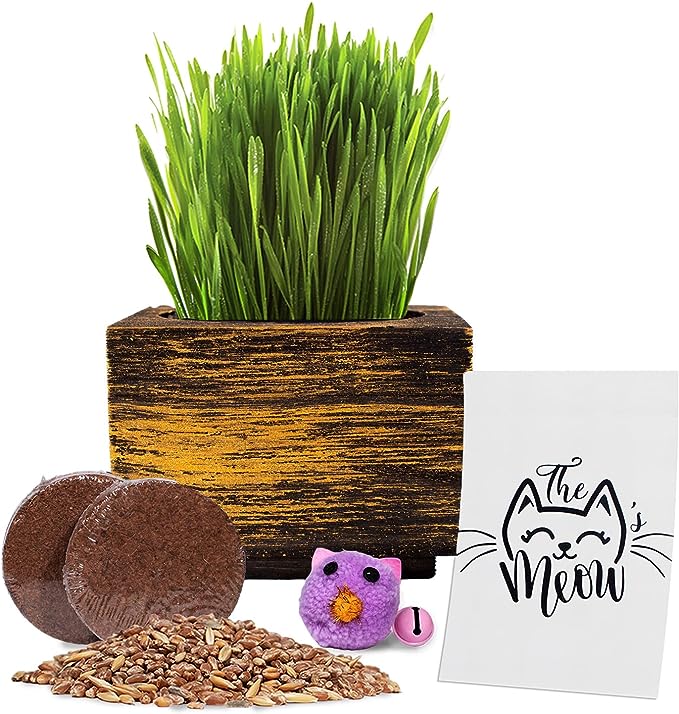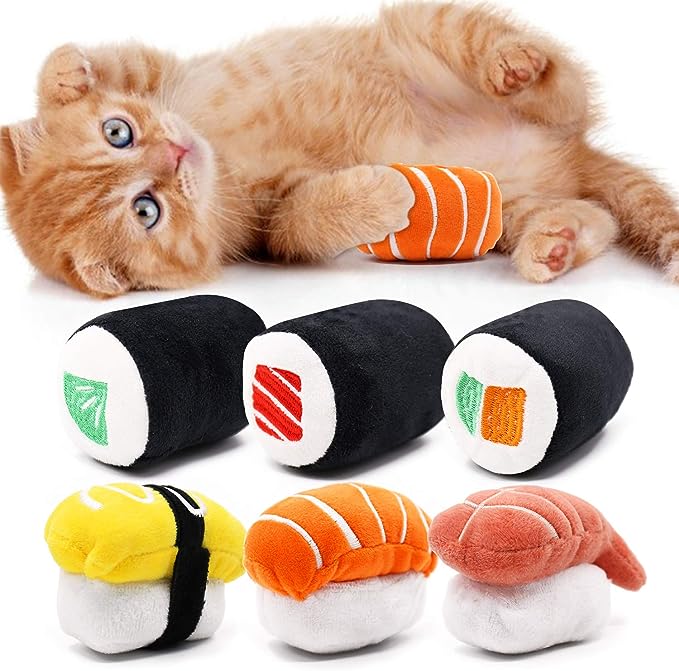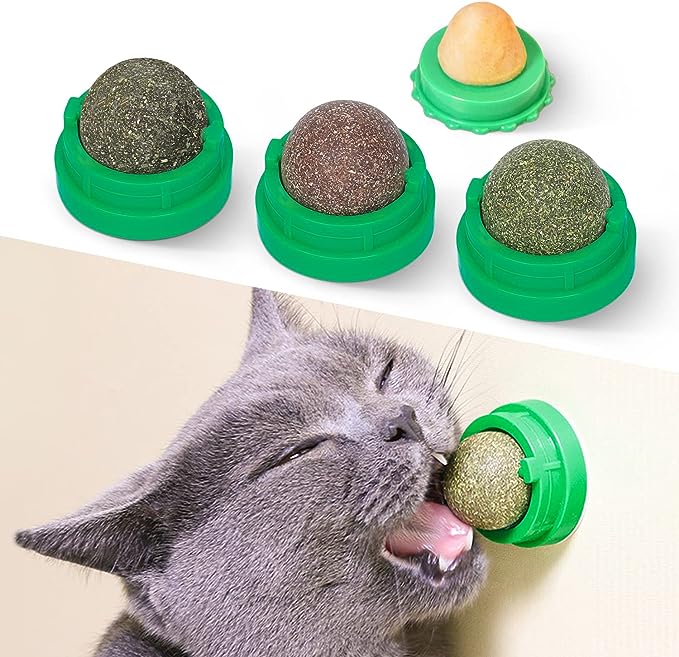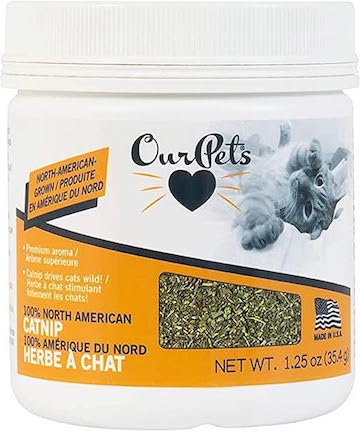The Impact of Catnip: Why Do Some Cats Go Crazy?

If you're a cat owner, you've likely come across the bizarre spectacle of your feline friend suddenly rolling, rubbing, and frolicking after being exposed to catnip. It's one of the feline world's most captivating mysteries. But what exactly is it about this herb that makes some cats go bonkers, while others remain indifferent? Let's dive deep into the catnip phenomenon to uncover the reasons behind these bizarre behaviors.
What is Catnip?
The Origins
Before we address its effects, it's crucial to understand what catnip is. Scientifically known as Nepeta cataria, catnip is a herb from the mint family. Originating from Europe and Asia, this plant has now become common in North America and other parts of the world.
The Key Ingredient
The primary component responsible for causing euphoria in cats is an essential oil called 'nepetalactone'. This compound is found in the seeds, stems, and leaves of the plant.
How Does Catnip Affect Cats?
The Catnip Reaction
When cats encounter catnip, they often sniff it, chew it, lick it, and rub their heads and body on it. This "catnip craziness" lasts for about 10 minutes, after which the cat loses interest. It takes a couple of hours before the cat responds to catnip again.
The Science Behind the Craziness
The compound nepetalactone binds to the receptors inside a cat's nasal tissues. This stimulates sensory neurons leading to the brain. The result? A surge of euphoria similar to the effects of hallucinogenic drugs in humans.
Genetic Predisposition
Not all cats are affected by catnip. It's estimated that about 30-50% of cats are indifferent to it. This indifference is inherited genetically, so if both parents are unaffected, their kittens are likely to be unaffected as well.
Benefits of Catnip
For Cats
Apart from the obvious euphoria, catnip can act as a sedative. When consumed (as opposed to sniffed), catnip has a calming effect on cats. It's also beneficial in toys or scratching posts, as it encourages play and exercise.
For Humans
Believe it or not, catnip isn't just for cats. Humans have used it for centuries as a remedy for various ailments, including insomnia, digestive problems, and even as an insect repellent.
Catnip is truly a wonder herb that has a profound impact on our feline friends. Whether it's for play, health benefits, or just sheer entertainment, catnip continues to intrigue both cats and their human companions. If your cat hasn't experienced the magic of catnip yet, maybe it's time for an introduction. Just be ready for some cat-tastic reactions!
Safety Considerations with Catnip
Moderation is Key
While catnip is generally safe for cats, it's essential to use it in moderation. Excessive exposure can lead to desensitization, meaning your cat might lose interest over time. To keep catnip exciting and effective for your feline friend, offer it no more than once every two weeks.
Potential Side Effects
On rare occasions, cats might display aggressive behavior when exposed to catnip. If you have multiple cats, it's advisable to introduce them to catnip separately to avoid any confrontations.
Choosing the Right Product
Always opt for organic catnip to ensure it's free from pesticides and chemicals. Whether you're buying toys, sprays, or the dried herb, always check the source and quality.
Catnip Product suggestions:

Cali Kiwi Pros Complete Organic Cat Grass Kit: 4"x4" Square Pedestal Planter
- Complete Growing Kit
- Wood Planter Included
- Soil Pucks Provided
- Organic Wheatgrass Seeds
- Fast 5-7 Day Growth

CiyvoLyeen 6 Pack Cat Sushi Toys with Catnip Sushi Roll Pillow
- Tasty Sushi Designs
- Soft Plush Material
- Organic Catnip
- Teeth Cleaning

Potaroma Catnip Toys Balls 4 Pcs
- 100% Natural & Non-Toxic Ingredients
- Four Different Flavors: Catnip, Silvervine, Gall Fruit, Cat Energy Ball
- Wall-Mountable & Strong Viscous Force
- 360° Rotatable Balls
- Effective Cat Attractants: Catnip & Silvervine

Our Pets Premium Catnip - 1.25 oz Jar of High Potency Catnip
- 100% Natural Premium North American Grown Catnip
- Encourages Playful Behavior in Cats
- Can Deter Destructive Behavior When Used with Toys and Scratchers
- Suggested Use: Effective When Given Every Other Day
Other Alternatives to Catnip
While catnip is the most famous herb for cats, it's not the only one. If your cat doesn't react to catnip or if you're looking for something different, consider the following:
Silver Vine
Often described as "catnip on steroids," silver vine is another plant that can induce euphoria in cats. It contains two compounds that attract cats – actinidine and dihydroactinidiolide.
Valerian Root
This herb has a similar effect on cats as catnip. Valerian can be found in toys and is often used as a sedative for humans too.
Tatarian Honeysuckle
This wood can have a catnip-like effect on cats when they chew on it. Not all cats respond to it, but it's worth a try if catnip doesn't do the trick.
Final Thoughts
Understanding the impact of catnip and its alternatives can enhance your cat's life, offering them fun, relaxation, and mental stimulation. While the effects of these herbs can be entertaining for us to watch, always ensure your cat's safety and well-being come first. Remember, every cat is unique, so it's all about finding what works best for your furry friend!
Catnip Myths Debunked
While catnip's effects on cats are widely observed, there are many myths and misconceptions surrounding this fascinating herb. Let's address some common ones:
Myth 1: Catnip is addictive
Truth: Catnip does not cause physical addiction or withdrawal symptoms in cats. While they might seem obsessed during their euphoric episodes, this is not indicative of dependency. Once the effects wear off, cats go back to their usual selves.
Myth 2: Cats can overdose on catnip
Truth: It's virtually impossible for cats to overdose on catnip. While they might experience a more extended euphoric episode with a larger amount, there's no risk of lasting harm. If anything, overexposure might make them less responsive to catnip in the future.
Myth 3: Only domestic cats respond to catnip
Truth: Many species of big cats, like lions and tigers, can also react to catnip with similar behaviors as domestic cats. However, not all big cats will respond, and their reactions can vary widely.
Myth 4: Kittens are responsive tod catnip
Truth: Most kittens don't show any interest in catnip until they are about 3-6 months old. The reaction to catnip is genetically predisposed and develops as they mature.
Using Catnip Responsibly
While catnip is mostly safe, it's essential to ensure that it's used responsibly to ensure your cat's happiness and health.
Storage
Keep catnip fresh by storing it in an airtight container, away from direct sunlight. This preserves its potency and ensures a more extended shelf life.
Fresh vs. Dried
While dried catnip is more common and easier to store, fresh catnip can offer a more potent reaction. Consider growing your own catnip plant at home for a constant fresh supply.
Observe Your Cat
Always supervise your cat during their catnip episodes. This allows you to gauge their reactions and ensure they don't hurt themselves in their excited state.
Final thoughts:
Catnip offers a fascinating insight into the world of cats and their unique behaviors. Whether used as a play enhancer, a training tool, or simply as a treat, it's essential to be informed and considerate about its usage. With the right approach, catnip can be a wonderful addition to your cat's environment, providing joy and stimulation in their lives.